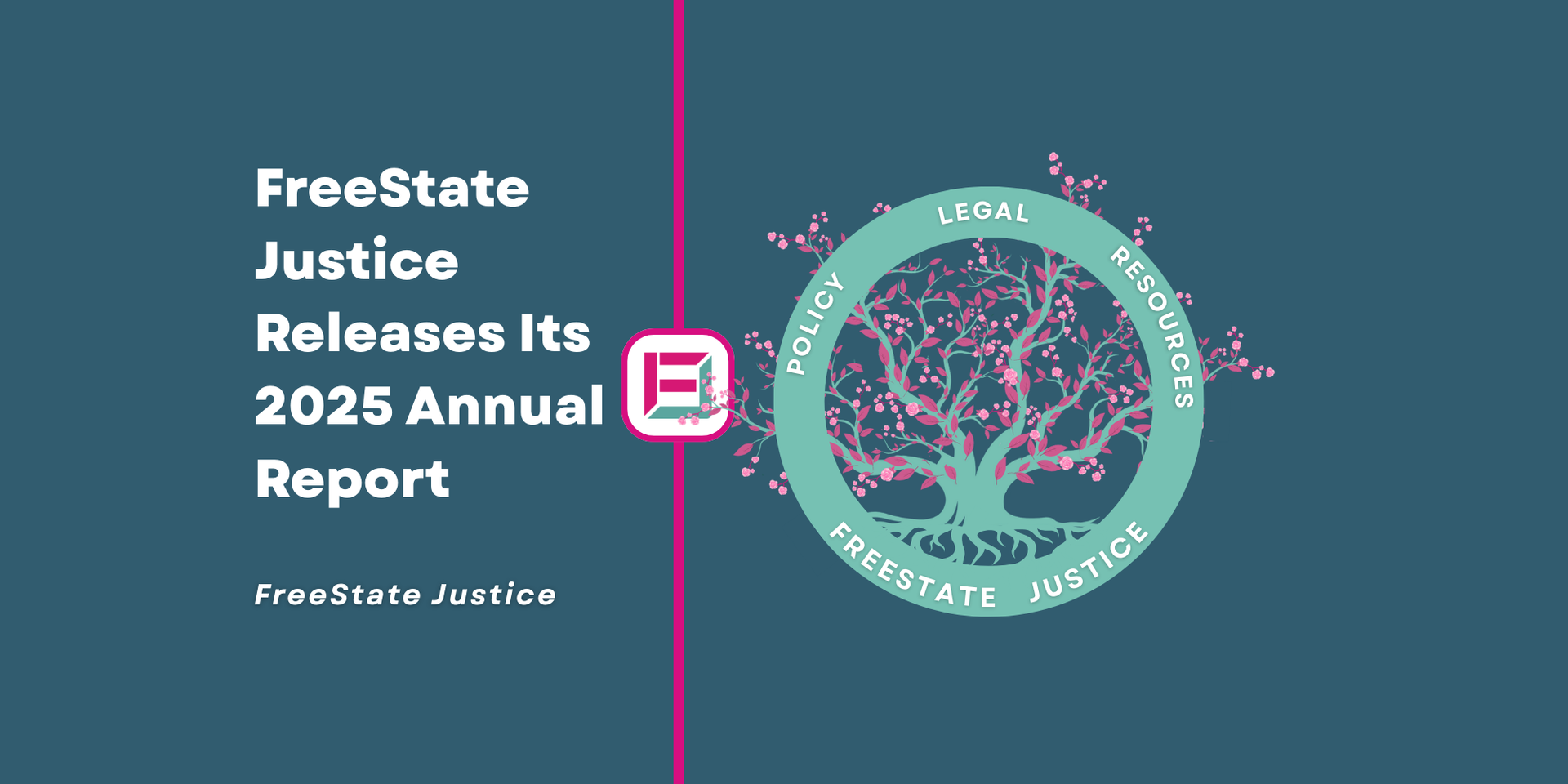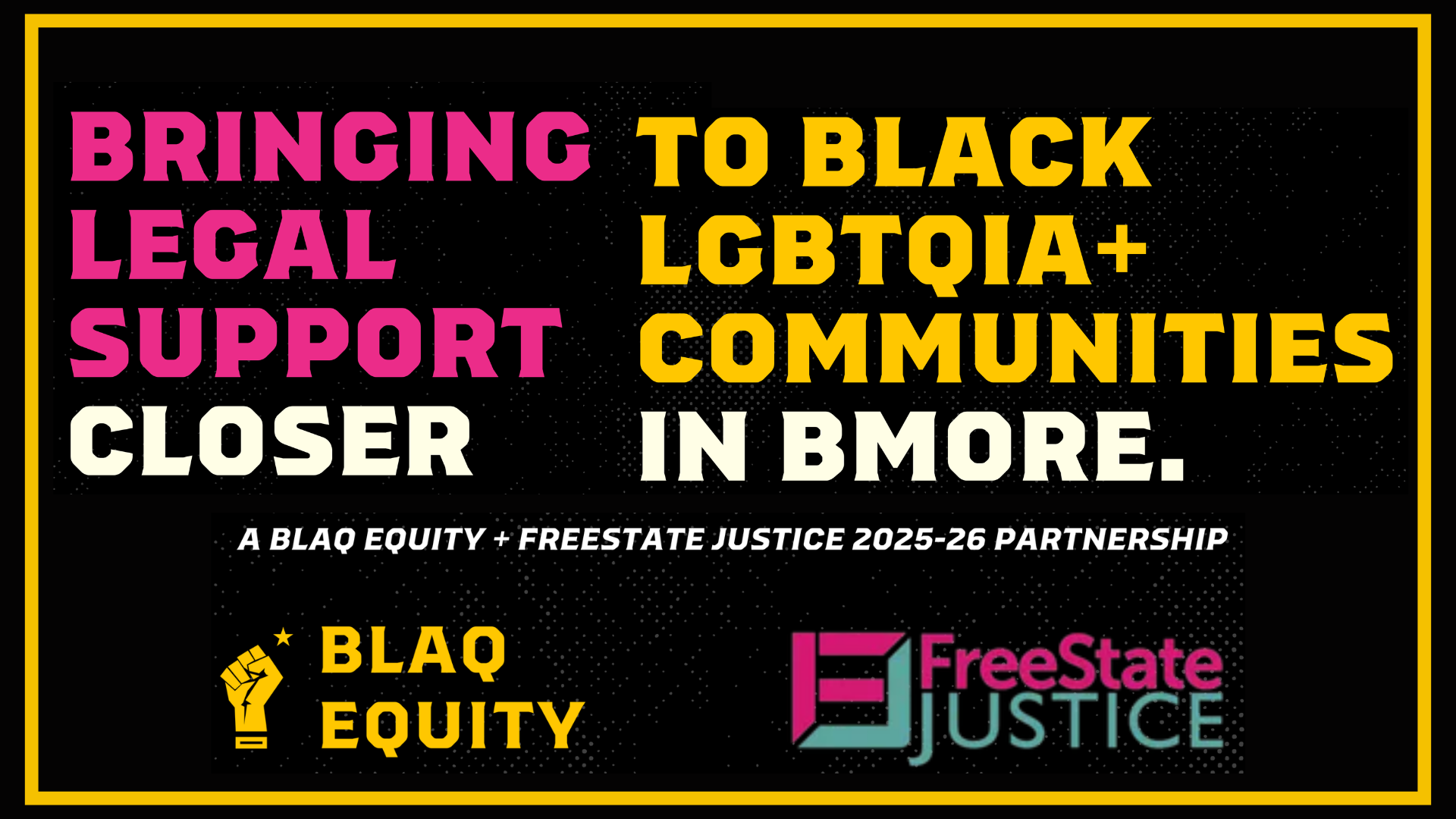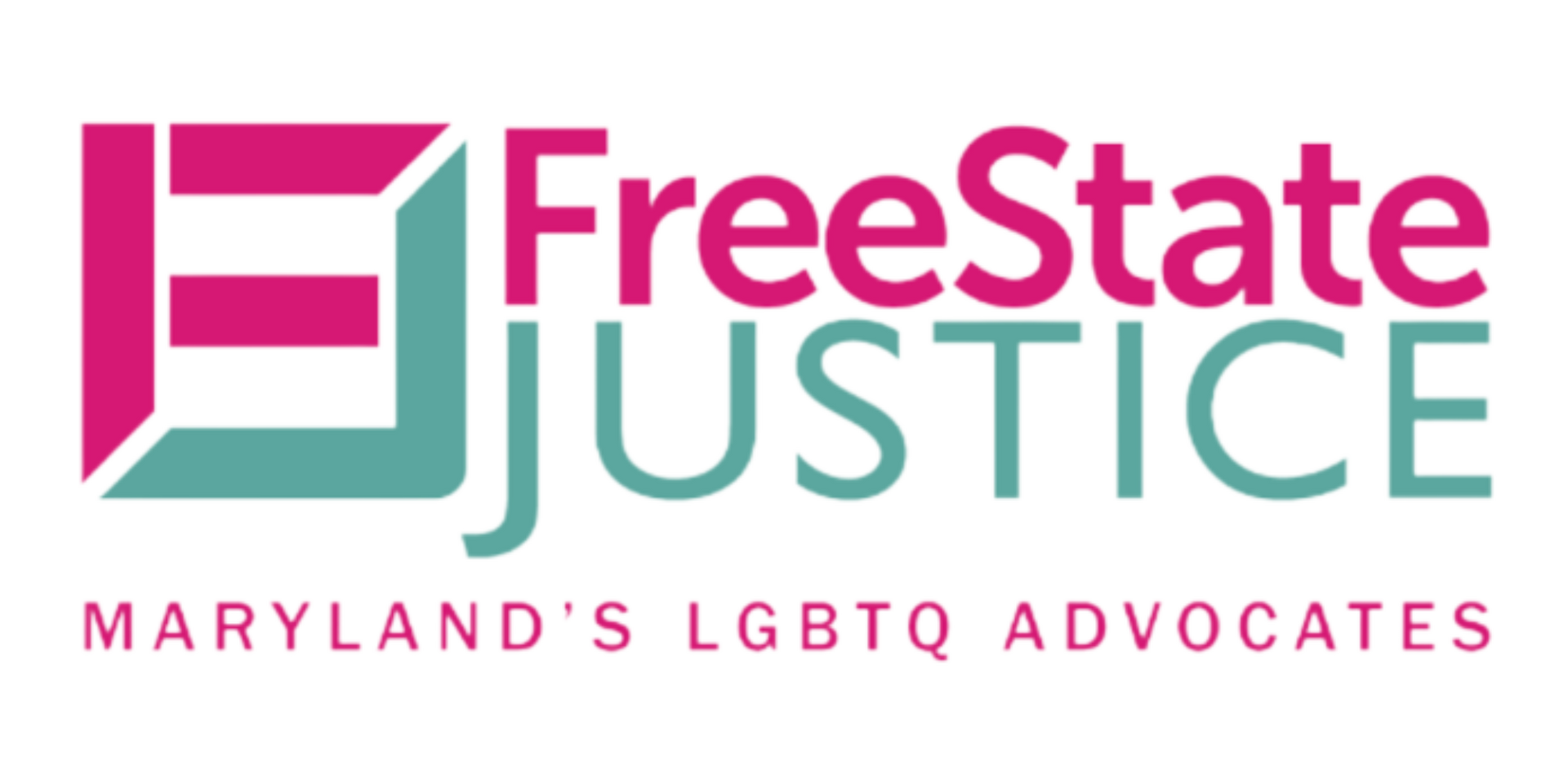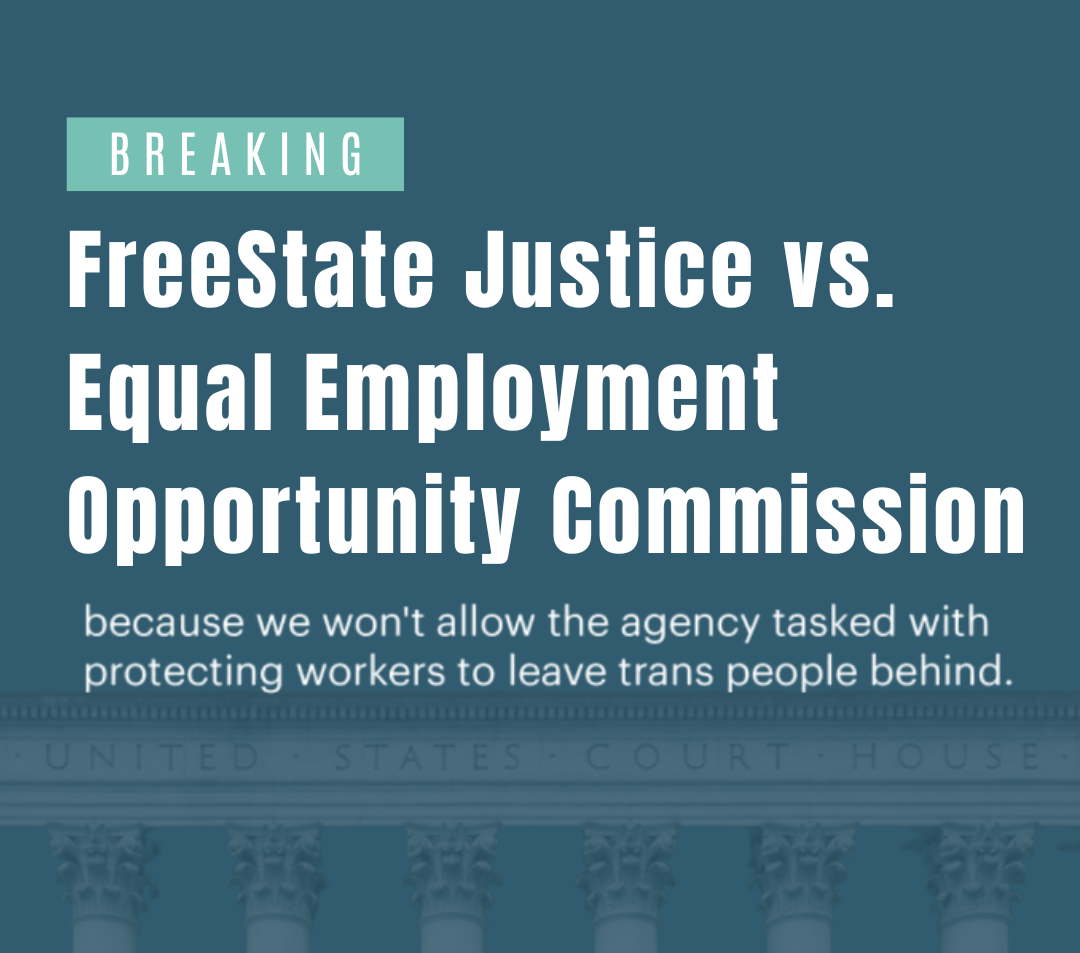Gender-Affirming Healthcare: FreeState’s Look Back on the 2024 Legislative Session
This post is part of a series providing in-depth and accessible breakdowns of Freestate Justice’s various policy objectives and accomplishments over the past 2024 Legislative Session within the Maryland General Assembly. For more posts like this, check out Freestate’s 2024 Legislative Session Reflection Series.
2024 has been quite eventful for LGBTQ+ Marylanders, with Freestate Justice and its coalition partners being involved in advocating for many bills that will affect the lives and well-being of Maryland’s LGBTQ+ community.
One such piece of legislation that FSJ helped to pass this previous session was Senate Bill 119. This law will modify Maryland’s Health Code to include gender-affirming treatment (such as top surgery and hormone replacement therapy) within the definition of “legally protected healthcare.” Under the previous state of affairs, state law did not explicitly protect gender-affirming healthcare. This lack of protection led to much ambiguity regarding whether healthcare providers who administered this kind of care to patients (or the individuals who received it) would be subject to legal penalties, including fines and incarceration.
Gender-affirming care is critically important to so many members of the LGBTQ+ community. The ability of people to define and express their gender is a human right, with a wealth of literature showing that access to gender-affirming healthcare for transgender and nonbinary individuals mitigates feelings of gender dysphoria (distress associated with a mismatch between one’s gender identity and their sex-related physical characteristics). Solidifying access to this form of support within the health code makes progress toward addressing many existing health inequities and injustices, creating a more affirming Maryland for all.
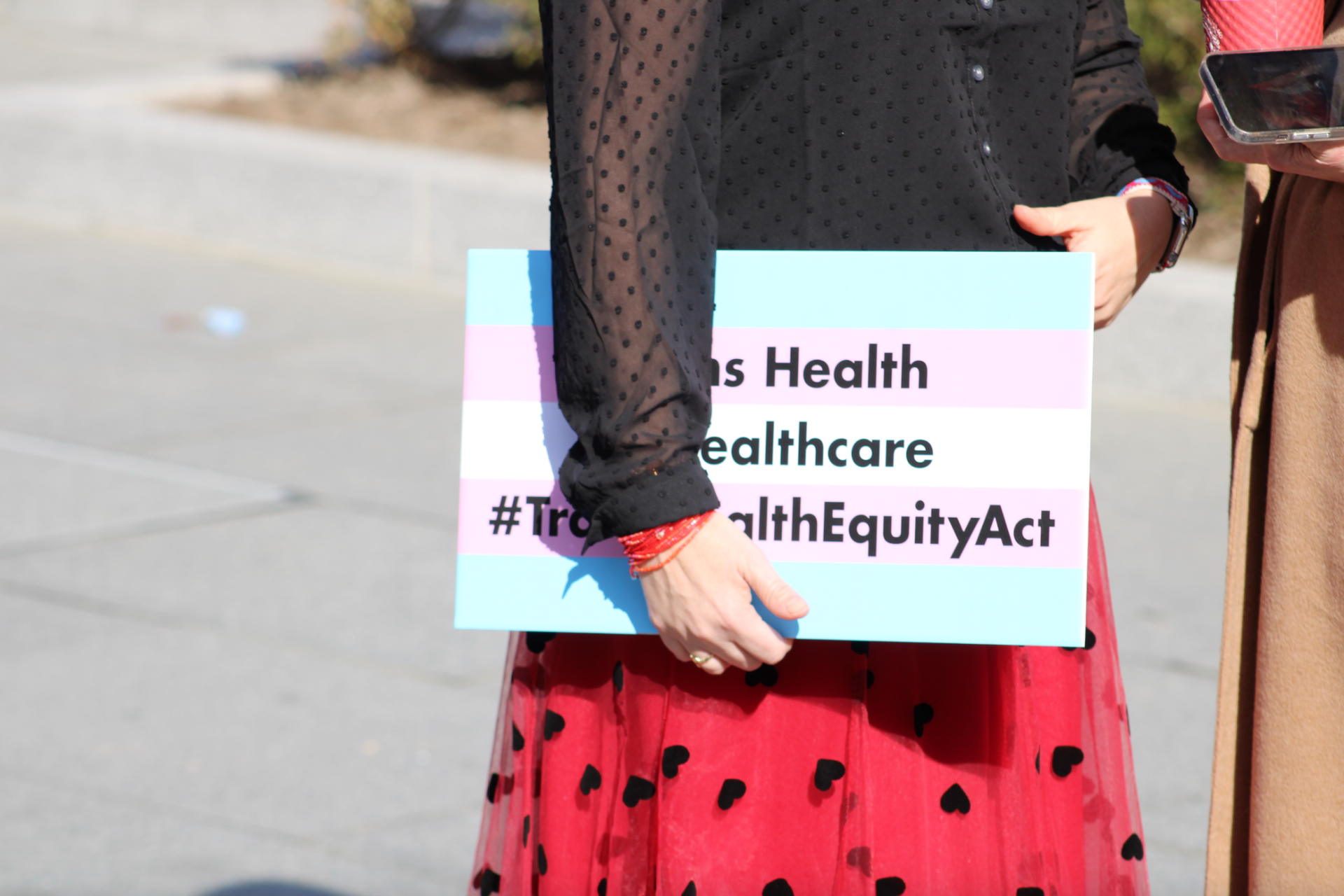
When the bill was presented within the legislature, Freestate’s Policy Advocate and Legal Impact Coordinator submitted their testimony to the Health and Government Operations Committee Chair. They wrote that if the General Assembly did not add gender-affirming care to the definition of “legally protected healthcare,” then the state would leave medical professionals and facilities subject to criminalization - the act of providing life-saving care could result in criminal punishment. Especially since many of Maryland’s neighboring states lik Ohio, Pennsylvania, and West Virginia, have criminalized or are moving towards criminalizing gender-affirming care. FSJ corresponded with multiple representatives to get their opinions on this legislation, and many of our staff members provided insightful testimony on the topic. We remain steadfast in ensuring that the Maryland General Assembly heard the voices of those affected by the medical necessity of gender-affirming healthcare.
We are glad that Maryland passed this critical legislation, a step towards progress for the LGBTQ+ community. We foresee that this law will help empower people to pursue the procedures that they need without fear of homophobic and transphobic out-of-state harassment via extradition and subpoenas of their medical records. This, and the ongoing advocacy of FSJ and organizations like it, brings us closer to an MD where LGBTQ+ people can live freely with their rights protected by the law.
However, we also recognize that much work still needs to be done. With many LGBTQ+ people still reporting discrimination and mistreatment from healthcare providers and the high costs of some gender-affirming healthcare presenting issues for low-income LGBTQ+ Marylanders, FSJ commits itself to the ongoing fight for health equity. By deepening its involvement in partnerships, initiatives, and legislative efforts that address healthcare disparities along gender and sexuality-based lines within this state, Freestate Justice intends to create a Maryland where all have access to the medical care they need and everyone has an equal opportunity to thrive.
This article was written by Nic Oke, a Legal and Policy Intern at Freestate Justice.

